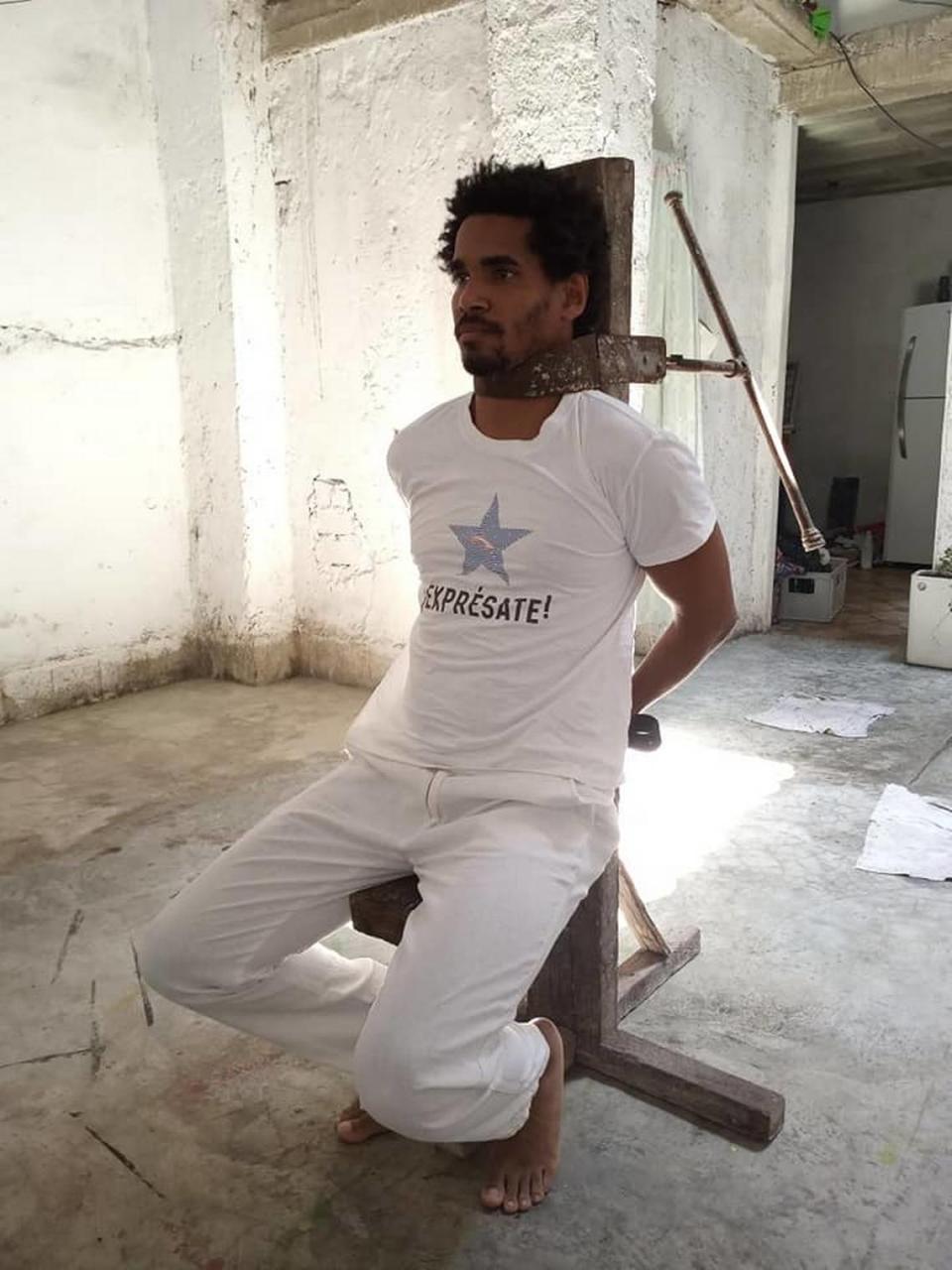Time Magazine delivers to Cuba’s brave freedom fighters what BLM doesn’t: Respect | Opinion
Thank you, Time.
At a critical moment for Cuba’s brave freedom fighters, the magazine has delivered to the movement what others on the American left like the founders of the Black Lives Matter organization have shamefully denied them — respect and support.
The national publication this week named Cuban artist Luis Manuel Otero Alcántara — a humble Black young man who hails from one of Havana’s poorest neighborhoods — one of the 100 most influential people of 2021.
Luis Manuel Otero Alcántara, “Luisma” to his friends, is an “icon” of the year.
Say his name and shed a tear of indignation.
He may not even know it.
He sits in a Cuban prison, jailed for the umpteenth time during the unprecedented massive, peaceful protests across the island on July 11.
His long list of “crimes” during the past years of resistance:
Opposing Decree 349, which says the government has to approve art content. Making art critical of the Cuban regime, despite the law. Wrapping himself in the flag and declaring that it belongs to us all. Inspiring other artists, who along with him, founded the San Isidro movement and ended up becoming the voice of a people who couldn’t speak — until they shed their fear and did so loudly two months ago.
“Jailed for what?” the State Department’s Bureau of Western Hemisphere Affairs asked this week on Twitter.
#JailedForWhat? - Luis Manuel Otero Alcantara, isolated without due process. Instead of allowing witnesses to see the prison conditions and permit fair and timely trials, the Government of Cuba denies access and delays trials. @LMOAlcantara pic.twitter.com/mXX6ILfBAX
— Bureau of Western Hemisphere Affairs (@WHAAsstSecty) September 14, 2021
Jailed Cuban artists
Say his name and that of other Cuban artists, writers and musicians arrested and imprisoned after President-not-elected Miguel Díaz-Canel and his goons unleashed ferocious repression on Cuba’s people for daring to clamor for “¡Libertad!”
Say the name of Afro-Cubans like Maykel Castillo Pérez, whose artistic name is Maykel Osorbo, one of the rappers who contributed to what has become the movement’s anthem and YouTube sensation, “Patria y Vida.” He, too, is in prison.
And so are rapper Didier Almagro; Ernesto Pacheco López, a musician, photographer and YouTuber; Hamlet Lavastida, an artist who had returned from residency at Künstlerhaus Bethanien, Germany, when he was arrested; and rappers Lázaro Rodríguez Betancourt (Pupito En Sy), and Randy Arteaga Rivera.
According to Pen America, there are “at least 39 documented arrests of artists related to the protests, four of whom were subjected to trial without a jury.” In addition, at least 55 artists and writers are currently either under house arrest, imprisoned or under investigation, says the human rights organization founded to protect open expression in the United States and worldwide.
Praise from renowned artist Ai Weiwei
For his courage, Otero Alcántara deserves every accolade that comes his way. Two months after the protests, Time’s recognition is important, not only for what it can do to bring about his freedom, but because of what it could represent to the 1,000 ordinary citizens and dissident Cubans also arrested and jailed.
“Luis Manuel Otero Alcántara’s art, his unignorable fight for freedom of expression and his uncompromising stance against autocracy reveal the power of resistance,” the world renowned Chinese artist and activist Ai Weiwei wrote in Time.
Otero Alcántara’s “life, behavior and expression as a whole are so powerful that they can resist the aesthetic and ethical degeneration of authoritarianism. Art needs courage, which he has repeatedly demonstrated,” Ai Weiwei said.
That respect and support stands in contrast to those who remain silent, thus becoming complicit with the human rights violations in Cuba, wholesale injustice only 90 miles from South Florida’s shores.
BLM should support Afro-Cubans
If anyone ought to be supporting the Cubans fighting for social change, it’s BLM and its powerful army of millions of voices in the United States and abroad.
Brave Afro-Cubans leading unprecedented protests in Cuba need BLM support | Opinion
But the organization’s founders, the Black Lives Matter Global Network Foundation, is tone deaf, and instead issued a statement in support of the oppressive 62-year dictatorship after the protests.
The case has been made that the self-described Marxist founders aren’t representative of the social-justice movement and this is true. But I don’t see support for Cuba’s oppressed manifested in the Black community in South Florida — or elsewhere in the United States.
Time, however, has not only listed Otero Alcántara along accomplished artists like Barbara Kruger, whose feminist images challenge gender cultural concepts, and Mark Bradford, an African American known for his unique “social abstraction” artistic language.
But the news magazine also elevated Otero Alcántara to influential icon status along greats like Olympic champion gymnast Simone Biles and Ngozi Okonjo-Iweala, the Nigerian-American woman who heads the World Trade Organization.
On July 11, the day of the historic protests, Otero Alcántara tweeted in Spanish: “Expect art in times of changing the dictatorship for real democracy, the latter being the solution for the ills in this beautiful country. #PatriaYVida”
It was his last tweet.
May all the influential people sharing the Time limelight send a letter to Díaz-Canel calling for Otero Alcántara’s freedom and that of all the other brave Cuban artists fighting for the just cause of speaking their truth.




